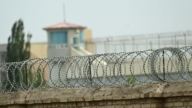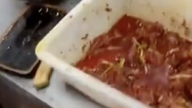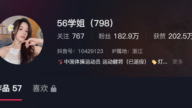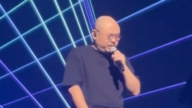【新唐人2012年7月31日訊】長期以來,人們似乎已經習慣了中國運動員在奪冠後千篇一律的「感謝國家、感謝領導」的致謝詞,但在7月29號的倫敦奧運賽場上,中國選手喻丹奪取了射擊項目的銅牌,在賽後她說出了「最想感謝父母」的獲獎感言,不但讓在場的中國記者鼓掌,也讓在場的各國記者感動,更有評論認為,中國運動員已有所覺醒了。
7月29號,倫敦奧運會射擊比賽在皇家炮團軍營結束女子10米氣步槍決賽,現年25歲、來自四川內江的喻丹以501.5環的成績摘得銅牌,一名英國女記者向喻丹問道:「喻丹,能說說你獲得銅牌後的心情嗎?」
喻丹沒有像被洗腦的中國運動員那樣,先「感謝國家、感謝領導」,她只說了一句「我最想感謝我的父母……」,說完忽然哽嚥了起來,隨後她站起身,恭恭敬敬的鞠了一躬說,「爸爸媽媽,我想謝謝你們!你們真的很不容易……」說到這裏,喻丹已經泣不成聲。
喻丹的發言讓所有在場的中國記者自發鼓掌,在外國記者茫然的目光中,翻譯用英語把喻丹的話重復了一遍,即時爆發巨大掌聲,提問的那位英國女記者眼眶也紅了。
山東大學教授孫文廣指出,中國運動員得獎後說出感謝父母的話,說明中共的「奴化」教育已經失敗,共產黨的教條已被廢棄。
孫文廣:「中共當局它用它們手中掌握的教育資源,所有的教育大學、中學、小學,整天灌輸學生就是:你們的幸福生活,社會的進步,全是依靠共產黨的領導,把青年人、少年人的腦子裡形成了一種定式了,不管甚麼公開場合首先感謝黨。」
原中國專業籃球運動員、加拿大籃球教練鞠濱指出,從人性的方面來講,感謝父母,感謝自己,都是比較實在的東西。
原中國專業籃球運動員鞠濱:「這種說法已經在中國體育界引起一些迴響,人們現在慢慢的也開始感覺到,不說這些大話或者是虛偽的這些東西,但是這套東西在中國不存在,這套東西首先在中國是甚麼你要感謝黨,沒有黨,你不認同這個黨,我比賽都不讓你比賽,我都不要你訓練,它制度是這樣的制度。」
2010年冬季奧運會,中國小將周洋,勇奪女子短道速滑1500米金牌,比賽結束後,周洋說:「拿了金牌以後會改變很多,更有信心,也可以讓我爸我媽生活得更好一點。」
但周洋的這番話,遭到國家體育總局副局長於再清的猛烈批評,他公開表示:「說孝敬父母、感謝父母都對,心裡面也要有國家,要把國家放在前面!」
不過,2009年離開國家隊,2011年取得法國網球公開賽女單冠軍的李娜,卻多次公開表明「打球不是為國家」。
鞠濱指出,中國運動員雖然已經有所覺醒,但這種「舉國體制」,牽涉許多利益和權力的瓜分,導致他們還不能徹底覺醒。
鞠濱:「我們要從本質上來看,你要把這個制度瓦解掉,歸根於社會的,體育來自於社會,來自於民間,我們就應該這樣子做,那中國不是這樣子的,中國就是花錢集中在這麼幾個人身上,或者一小批人身上,這些人不是為大眾服務的,是為國家服務的。」
此外,射擊比賽冠軍得主—-中國選手易思玲,在微博上用了標準感言:「感謝祖國人民對我的支持。」而中國媒體的焦點也全放在易思玲身上,對喻丹的報導篇幅極少,甚至國務院發的賀電上都沒有喻丹的名字,中共喉舌《央視》也沒有一個對準喻丹的特寫鏡頭。
更有媒體將喻丹淚灑記者會,寫成她因為最後一槍表現失準、無法獲得銀牌,因此大哭「釋放壓力」。
但也有評論讚揚喻丹的「感謝父母」,認為這是詮釋中華民族傳統美德中的「孝」,是對中國文化的一次宣揚。
網友讚譽喻丹的表現比取得奧運金牌更能讓父母感到驕傲,是「血肉常人」的表現。但也有網民擔心,喻丹的「感言」有可能影響她的前途。
採訪編輯/李韻 後製/李月
Media Praise Yu Dan’s Gratitude to Parents after Getting Olympic Bronze Medal
For a long time, people have become accustomed
to Chinese athletes’ speeches, which give
“thanks to the country, thanks to the leadership."
But on July 29, Chinese player Yu Dan said that she
wanted to “thank my parents the most,”
after she captured the bronze medal
at the London Olympic Games.
Chinese reporters applauded and
other reporters were also touched.
Commentators think that Chinese athletes have awakened.
The final of the women’s 10 meter air rifle at the London
Olympic Games concluded on July 29.
It took place at the Royal Artillery Regiment barracks.
25-year old Yu Dan from Sichuan Province
won the bronze medal with the score of 501.5 ring.
A British female reporter asked Yu: “Yu Dan,
can you talk about your mood after getting the medal?"
She was unlike other Chinese athletes who
always say, “thank the country and the leadership.”
Yu Dan said, “I want to thank my parents the most…”
She chocked afterwards, standing to take a deep bow.
“Baba and Mama, I really thank you!
You have gone through hardship…” Yu Dan started crying.
Chinese journalists who were present applauded this.
Loud applause was heard after it was translated.
British reporters also had tears in her eyes.
Sun Wenguang, Shandong University professor:
“When Chinese athletes say thanks to their parents,
it indicates a failure of the Chinese Communist Party
(CCP) education of slavery.
Sun Wenguang: “The CCP uses its resources on education
to brainwash students that their happiness, and progress of society, depend completely on the CCP.
Young people have this model of thinking.
They thank the CCP first in all situations.”
Ju Bin, former Chinese professional basketball player,
who now coaches basketball in Canada, said that
it is human nature to thank one’s parents and oneself.
Ju Bin: “This statement echoes
with the athlete field in China.
People are slowly starting to think about
not saying these untruthful things.
In China’s system, one has to thank the CCP.
Without doing that, and without confirming the CCP,
you are not allowed to compete or get training.
This is how the system works.”
In the 2010 Winter Olympics, China’s athlete Zhou Yang
got the 1500m short track speed skating gold medal.
She said after the games that
“I will change a lot after this gold medal.
I am more confident and can
let my parents live a better life.”
Zhou Yang’s statement was criticized by Yu Zaiqing,
deputy leader of China’s General Administration of Sport.
He publicly expressed: “It is correct to thank one’s parents.
You also need to have your country in your heart,
and put the country in first position.”
Li Na, who left the Chinese national team in 2009
and won the 2011 French Open, expressed publicly many times that “playing tennis is not for the country.”
Ju Bin pointed out that Chinese
athletes are starting to wake up.
China’s “Entire National System” involves many benefits
and power struggles, so that they cannot completely awaken.
Ju Bin: “The bottom line is to have this system collapse.
Sports should come from people and society. But it is not the case in China.
The Chinese government uses money on several people.
These people work for the government, not for the people.”
In addition, gold medalist Yi Siling published
a standard thankful message on her microblog:
“Thanks for the support from the country and the people.”
Chinese media reported heavily on Yi Siling, but rarely on Yu.
Yu Dan’s name was not mentioned in the congratulation
message from the state council.
CCP state media CCTV did not have
a close-up shot of Yu Dan.
Some media even interpreted her tears
as losing the silver medal for missing the last shot.
Some commented that Yu Dan’s statement reflects
“filial piety,” a component of traditional Chinese culture.
It promoted the Chinese culture.
Netizens praised Yu Dan that her statements
make her parents prouder than the medal.
It is human nature. Some netizens worry that
her statement might impact her future.




























